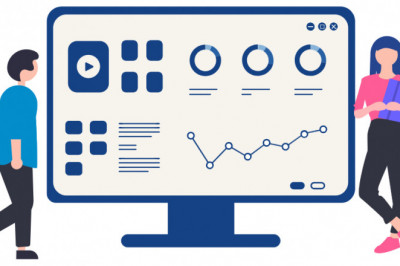views

Typically, large B2B transactions are made on credit- meaning that the payment for the goods or services is not immediately made to the seller. Instead, they generate an ‘invoice’ to the purchasing party, with the total amount due and the date for payment.
However, offering such credit facilities to buyers usually binds funds that the business might put into investments or other use. It is for this reason that many businesses look for ways to monetize their outstanding invoices.
What is Invoice Financing?
It is a form of short-term borrowing that is extended by a third-party lender to business owners based on the latter’s unpaid invoices. Here, the ‘accounts receivable’ is used as collateral for funding, and a percentage of the invoice amount has to be paid to the lender as a fee for the borrowed money.
In recent times, invoice financing has risen in popularity owing to the steady increase in the number of SMEs in the market. Instead of waiting around for customers to pay their dues, such small businesses turn to B2B payment services to get their hands on the money as soon as they can, sometimes to maintain a good cash flow or to expand their activities or merely to sustain the cut-throat market competition.
Types of Invoice Financing
● Invoice Factoring- Here, a business sells its unpaid invoices to the third-party lender, and receives an immediate payment for a major portion of the total amount. The invoice factoring company, in due course, receives payment directly from the business’ clients, and pays the remaining invoice amount to the business minus an agreed upon fee for the service.
● Invoice Discounting- As opposed to invoice factoring, here the third-party lender does not take control over the eventual payment of the invoices by the business’ customers. Here, the business only receives a percentage of the money owed in their accounts receivable for a given fee.
● Invoice Trading- This relatively recent technique is a form of peer-to-peer business, involving the use of online platforms to sell invoice debt to other companies or investors rather than standalone money lenders.
When Is It Best To Use Invoice Financing?
● In cases where a valuable and reliable customer insists on longer payment terms, invoice financing can help your business regulate its monthly cash flow while also accommodating for the demands of the former.
● If you haven’t yet received payment for sales from your customers, but the time for paying your supplier has come, you can opt for invoice financing to cover such costs.
● If you spot an opportunity for business expansion but your funds are tied up in accounts receivable, then invoice financing can help you with immediate money to put into such use.
Takeaway
Invoice financing is a very good opportunity for SMEs, providing them with the money that’s owed to them, sooner than later. Invoice financing from B2B payment services is often a more viable option for such small businesses than traditional bank loans.
Embifi is a B2B checkout, financing, lending and payments platform, designed especially to serve the credit needs for SMEs. For more details on how their services can help the credit journey of your business, contact team Embifi.












